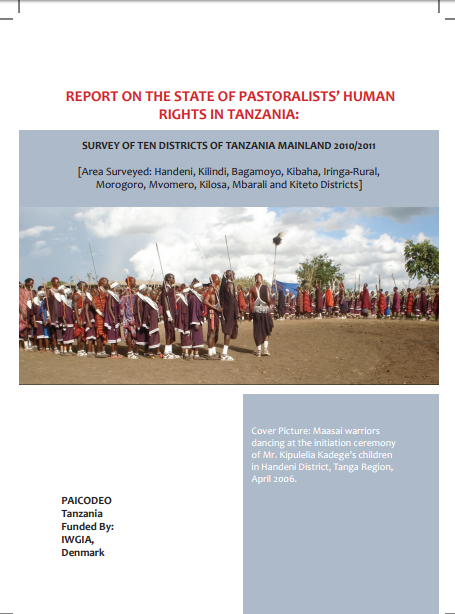Resource information
This report highlights some of the human rights challenges which the Indigenous peoples in Tanzania, particularly Maasai pastoralists, are facing. It also proposes some areas of improvement in order to make Tanzania a better place for everyone, including indigenous pastoralists. It should be noted that Tanzania has more than 120 different ethnic groups, which are Bantu-speaking, Nilo-hamitic (including the Maasai) and Cushitic. The Maasai are universally recognized as indigenous people because of the distinctiveness of their way of life, which inter alia, totally depends on the nature surrounding them. The study for this report was conducted in the ten districts mentioned on the cover page. The selection of sampled districts was based on two main criteria: firstly, PAICODEO’s project areas and, secondly, areas which are predominantly occupied by the indigenous Maasai pastoralists. It covers the period of January-December 2011 plus information beyond that used to enrich some of the arguments and presentation of the facts contained in this report. Both primary and secondary data collection methodologies were used. A total of 109 people were interviewed. Out of that number, 34 or 31.2% were women and the remaining 75 (68.8%) were men.



